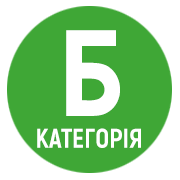INNOVATIVE FACT-CHECKING METHODS IN DIGITAL JOURNALISM
DOI:
https://doi.org/10.32689/maup.philol.2025.2.12Keywords:
автоматизований фактчекінг, цифрове медіасередовище, етичні стандарти, дезінформація, журналістська відповідальність, штучний інтелект, алгоритмічна прозорістьAbstract
The rapid development of digital technologies, in particular automated artificial intelligence systems, creates new opportunities for fact-checking in journalistic practice, but at the same time raises challenges related to ethics, reliability and transparency of the media. The relevance of the study is due to the need to adapt international innovative approaches to fact-checking to the domestic context, taking into account the peculiarities of the digital infrastructure and socio-cultural environment. The purpose of the article is a comprehensive analysis of innovative fact-checking methods used in digital journalism, with an emphasis on their effectiveness, implementation challenges and practical feasibility for Ukrainian editorial offices. The methodological basis was general scientific methods of analysis, comparison and generalization. A content analysis of sources was conducted, which allowed us to identify key tools used by leading world media and assess their relevance to the Ukrainian context. The study identified the advantages and limitations of digital fact-checking technologies, in particular the use of AI algorithms, automated platforms and databases. It was established that effective implementation of innovations in the field of fact-checking is possible only if technological solutions are combined with the development of professional standards, training of journalists and ethical support of automation processes. Particular attention is paid to the need to create localized knowledge bases and develop a national network of cooperation between fact-checkers, editorial offices and IT communities. A number of practical recommendations are proposed for improving digital fact-checking in Ukraine, which include technological integration, modernization of ethical protocols, development of transparent reporting mechanisms and formation of a stable infrastructure of trust between the media and the audience. The scientific novelty of the work lies in the systematization of modern innovative methods of fact-checking in digital media and substantiation of the prospects for their adaptation to Ukrainian realities. Prospects for further research are related to empirical testing of the proposed solutions in the activities of Ukrainian media organizations and the expansion of interdisciplinary cooperation in the field of digital journalism.
References
Бідзіля Ю., Гецко Г. Вплив новітніх технологій на трансформацію професійних стандартів у журналістиці. Вчені записки ТНУ імені В. І. Вернадського. Серія: Філологія. Журналістика. 2025. Т. 36 (75). № 2. С. 205–213. DOI: https://doi.org/10.32782/2710-4656/2025.2.2/31
Гнатишин С. Блогосфера в системі професійної підготовки сучасних журналістів. Communications and Communicative Technologies. 2025. № 25. С. 38–44. DOI: https://doi.org/10.15421/292505
Дворянин П. Розуміння стандарту: пошуки нових правил у журналістиці війни. Вісник Львівського університету. Серія Журналістика. 2024. Вип. 54–55. С. 43–57. DOI: http://dx.doi.org/10.30970/vjo.2024.54-55.12146
Дрешпак В., Кодацька Н., Сенкевич Г., Чикаренко О., Ятчук О., Авраменко І., Павленко Є. Соціальні комунікації та медіатехнології у контексті міждисциплінарних досліджень: колективна монографія. Дніпро, 2023. 229 с. URL: http://biblio.umsf.dp.ua/jspui/handle/123456789/5776 (дата звернення: 14.06.2025).
Йордан Г. М., Тарасюк В. Ю., Лаврик О. В. Вплив фактчекінгу на якість інформації в епоху цифрової журналістики. Вчені записки ТНУ імені В. І. Вернадського. Серія: Філологія. Журналістика. 2025. Т. 36 (75). № 2. С. 214–222. DOI: https://doi.org/10.32782/2710-4656/2025.2.2/32.
Корнєєв В., Сащук Т. Комунікаційне середовище в умовах трансформації медіасистеми. Вісник Книжкової палати. 2025. № 2. С. 30–38. DOI: https://doi.org/10.36273/2076-9555.2025.2(343).30-38
Лозинська О., Висоцька В., Марків О., Назаркевич М. Аналіз методологій виявлення джерел дезінформації. Herald of Khmelnytskyi National University. Technical sciences. 2024. Т. 341. № 5. С. 57–64. DOI: https://doi.org/10.31891/2307-5732-2024-341-5-8
Свистуха Д. Змінюється фокус, але не інтерес. Яка медіаприсутність України у світі – звіт BRAND UKRAINE. Медіамейкер: вебсайт. 2025. URL: https://mediamaker.me/zminyuyetsya-fokus-ale-ne-interes-yaka-mediaprysutnist-ukrayiny-u-sviti-zvit-brand-ukraine-16166/ (дата звернення: 14.06.2025).
Ситник О. Проблематика впровадження штучного інтелекту в сучасних ЗМІ та медіатехнологіях. Український інформаційний простір. 2023. № 2(12). С. 252–265. DOI: https://doi.org/10.31866/2616-7948. 2(12).2023.291187
Тесленко К. Висвітлення збройних конфліктів у добу цифрових технологій: як журналісти використовують ШІ, OSINT та інноваційні інструменти. Національна спілка журналістів України: офіційний сайт. 2025. URL: https://nsju.org/navchannya/vysvitlennya-zbrojnyh-konfliktiv-u-dobu-czyfrovyh-tehnologij-yak-zhurnalisty-vykorystovuyut-shi-osint-ta-innovaczijni-instrumenty/ (дата звернення: 15.06.2025).
Улибін В. Етичні аспекти роботи журналіста в умовах воєнного стану. Інтегровані комунікації. 2023. № 1 (15). С. 95–103. DOI: https://doi.org/10.28925/2524-2644.2023.1512
Фурса І. Висвітлення прав людини в українських медіа: тенденції та проблеми. Вчені записки ТНУ імені В. І. Вернадського. Серія: Філологія. Журналістика. 2024. Т. 35 (74). № 6. С. 259–264. DOI: https://doi.org/10.32782/2710-4656/2024.6/41
Чайкун О. Медіа в умовах кризових ситуацій: трансформація комунікативної взаємодії з аудиторіями. Наукові праці Міжрегіональної Академії управління персоналом. Філологія. 2024. Вип. 4 (14). С. 92–107. DOI: https://doi.org/10.32689/maup.philol.2024.4.16
Cazzamatta R., Sarısakaloğlu A. Mapping Global Emerging Scholarly Research and Practices of AI-supported Fact-Checking Tools in Journalism. Journalism Practice. 2025. DOI: https://doi.org/10.1080/17512786.2025.2463470
Dierickx L., Lindén C. Journalism and fact-checking technologies: Understanding user needs. Communication+ 1. 2023. Vol. 10. № 1. P. 1–28. DOI: https://doi.org/10.7275/cpo.1879
Johnson P. A case of claims and facts: Automated fact-checking the future of journalism’s authority. Digital Journalism. 2024. Vol. 12. № 10. P. 1461–1484. DOI: https://doi.org/10.1080/21670811.2023.2174564
Oliinyk I., Bidzilya Yu., Solomin Ye., Shapovalova H., Hetsko H. The Role of Digital Technologies in Building Research Competencies of Future Doctors of Philosophy. The Journal of Education, Culture, and Society. 2023. Vol. 14. №. 2. P. 268–284. DOI: https://doi.org/10.15503/jecs2023.2.268.284
Sixto-García J., López-García X. Innovative innovation in journalism. Journalism. 2025. Vol. 26. № 1. P. 65–88. DOI: https://doi.org/10.1177/14648849231219359







